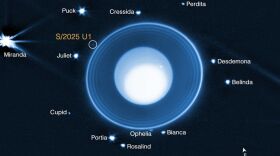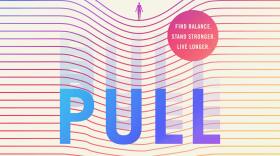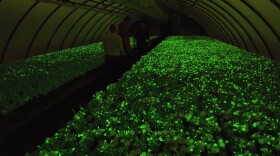-
A sun-sized space detector called LISA is set to catch ripples from colliding black holes, giving scientists a brand-new way to explore the universe.
-
The Geminid meteor shower is set to light up the sky this weekend with up to 120 dazzling meteors per hour.
-
Boise is gearing up as space experts come together to explore what it would really take to build a home among the stars.
-
What’s it like to hang in the vastness of space and stare down at the Earth? Well, Astronaut Steve Swanson has a pretty good idea.
-
What if gravity isn’t just holding us down, but shaping our minds and bodies in ways we never imagined?
-
Called Solar For All, it allocated $56 million in grant money for solar panel construction to bring down energy prices for low-income Idahoans.
-
Idaho has a high rate of skin cancer-related deaths. But with proper sun protection measures, Idahoans can help change that.
-
You may have noticed that the price of vanilla has skyrocketed in the past 10 years, which has been a boon for vanilla farmers, but it's also created some problems.
-
A new bioluminescent plant is causing quite the stir among those in the gardening community.
-
More than 1,900 scientists are calling out the Trump administration, saying it’s waging an assault on science.
-
According to research, losing your sense of smell may be a precursor to Alzheimer’s, which is why scientists are coming up with a new way to help detect early stages of the disease.
-
Take a trip through our solar system with author John Moores as he combines both imagination and science for an unforgettable adventure.
















